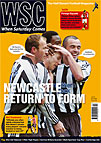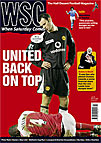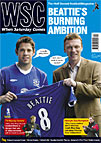 Arsène Wenger isn’t prejudiced against English players, says Jon Spurling, but the exploits of Paul Merson, Francis Jeffers and Jermaine Pennant won’t have impressed him or anyone
Arsène Wenger isn’t prejudiced against English players, says Jon Spurling, but the exploits of Paul Merson, Francis Jeffers and Jermaine Pennant won’t have impressed him or anyone
Having been described in Le Monde as “une honte” and in Die Welt as “eine Schande”, Arsène Wenger appears to be “a disgrace” in every European language. Paul Merson’s comments, which first appeared in the Daily Mail, were quickly taken out of context by an assortment of newspapers around the continent. Le Monde excelled itself, suggesting that Merson had also labelled his former manager “une brome” (“a joke”). In fact, Merson had described the absence of any British players in Arsenal’s squad to face Crystal Palace as “a joke”, rather than directly name-calling Wenger. By selecting an all-foreign squad, the Arsenal manager left himself open to a raft of criticism. José Mourinho claimed that “the backbone of my Chelsea team will always be English”, ignoring the fact that only three of his regular starting XI (John Terry, Wayne Bridge and Frank Lampard) are British and that a spate of injuries could easily leave him in the same boat as Wenger. Mourinho added: “He [Wenger] is forgetting the influence which English players have had on Arsenal.” The opposite is true. Wenger is totally au fait with the legacy left by English players at Highbury, perhaps overly so.

